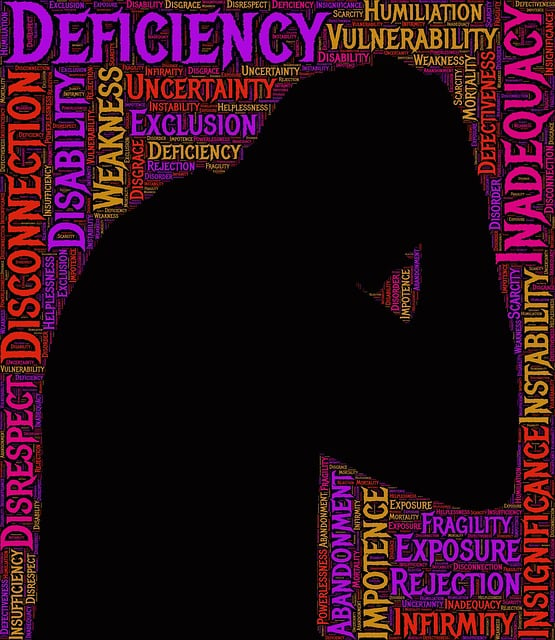Trauma can have lasting effects on young children's emotional development, requiring early intervention through targeted therapy like couples counseling. This approach mitigates trauma's impact, promotes mental health awareness, and teaches healthy coping mechanisms, enhancing resilience and overall wellness. Cultural sensitivity and emotional well-being promotion techniques in couples counseling are effective for young children's trauma. Integrating family-based approaches ensures support for the entire family unit, with research showing trauma often affects all members. Accessing diverse resources, including specialized therapy programs and community support, caters to specific needs and reinforces healing strategies for comprehensive trauma recovery.
Trauma support services are vital in helping individuals and families navigate the healing process. This comprehensive guide explores various aspects of trauma care, focusing on effective strategies for young children, couples, and family-based approaches.
We delve into the profound impact of trauma on young minds and highlight the significance of therapy in their recovery. Additionally, we examine couples counseling as a powerful tool for partners facing trauma together. By integrating these diverse methods, we aim to illuminate accessible resources for those seeking effective trauma support, emphasizing the importance of tailored care.
- Understanding Trauma and Its Impact on Young Children
- The Role of Therapy for Children Experiencing Trauma
- Couples Counseling: Supporting Partner's Through Trauma Recovery
- Integrating Family-Based Approaches in Trauma Support Services
- Accessing and Navigating Available Resources for Effective Trauma Care
Understanding Trauma and Its Impact on Young Children

Trauma can profoundly affect young children, leaving lasting impacts on their emotional and behavioral development. It’s crucial to understand that trauma isn’t just a one-time event but can result from chronic stressors or adverse experiences, such as abuse, neglect, or exposure to violence. These experiences can disrupt a child’s sense of safety, trust, and security, leading to difficulties in forming healthy relationships and managing emotions later in life without proper support.
Early intervention through therapy for young children, including couples counseling where applicable, plays a pivotal role in mitigating the effects of trauma. Mental wellness coaching programs designed specifically for this age group can provide anxiety relief and foster mental health awareness. By addressing trauma early, these services contribute to the development of healthy coping mechanisms, enhance resilience, and promote overall mental wellness, ensuring children have the tools to navigate life’s challenges effectively.
The Role of Therapy for Children Experiencing Trauma

Children who have experienced trauma often require specialized support to navigate their emotional landscapes and heal effectively. Therapy plays a pivotal role in this process, offering a safe and supportive environment for young minds to express themselves and work through their traumatic experiences. Through evidence-based therapeutic approaches tailored to their age, children can develop essential coping mechanisms and learn healthy ways to manage anxiety relief and emotional regulation.
One effective approach is couples counseling, which involves both the child and their primary caregivers. This collaborative therapy facilitates open communication, helping to identify and address any underlying issues that may contribute to burnout prevention. By involving parents or guardians, therapists empower them with strategies to provide consistent emotional support at home, fostering a nurturing environment conducive to recovery and overall well-being.
Couples Counseling: Supporting Partner's Through Trauma Recovery

Trauma can significantly impact relationships, which is why couples counseling plays a crucial role in supporting partners through their recovery journey. This specialized therapy offers a safe space for both individuals to process their experiences and emotions, fostering better understanding and empathy within the partnership. By incorporating emotional well-being promotion techniques, counselors help couples navigate the challenges of trauma together, strengthening their bond and improving communication.
Cultural sensitivity in mental healthcare practice is essential when providing couples counseling. Recognizing and respecting diverse cultural backgrounds ensures that the therapy aligns with each partner’s unique perspectives and experiences. This personalized approach not only enhances the effectiveness of treatment but also encourages open dialogue, allowing couples to explore their trauma and work towards healing in a culturally affirming environment. Additionally, encouraging both partners to develop a self-care routine for better mental health can complement the counseling process by providing practical tools for managing stress and supporting each other’s recovery on a daily basis.
Integrating Family-Based Approaches in Trauma Support Services

Integrating family-based approaches into trauma support services is a powerful strategy that recognizes the deep interconnectedness of relationships and their impact on healing. This method prioritizes the whole family unit, including parents, siblings, and other significant figures, in the therapeutic process. By involving all members, these strategies aim to enhance the effectiveness of trauma therapy for young children. Research shows that trauma often affects entire families, with each individual coping mechanisms influencing one another. Thus, a holistic approach ensures that everyone receives the necessary support to build confidence and overcome barriers associated with trauma.
Family-oriented counseling sessions can provide a safe space for open communication, fostering understanding and empathy. This is particularly beneficial in reducing the mental illness stigma within families, as it encourages every member to participate actively in healing. Moreover, healthcare provider cultural competency training plays a pivotal role here. Trained professionals can tailor their approach to diverse family structures and cultural backgrounds, ensuring that each family receives personalized support. Through these comprehensive methods, trauma support services can create an environment of trust and unity, empowering families to navigate the healing journey together.
Accessing and Navigating Available Resources for Effective Trauma Care

Accessing effective trauma support services involves understanding and navigating a range of available resources tailored to specific needs. For young children experiencing trauma, specialized therapy programs designed for their age group are crucial. These often incorporate play therapy, art therapy, and mindfulness techniques that cater to their developmental stage, making emotional healing processes more engaging and accessible. Similarly, couples counseling is a vital resource for partners navigating trauma together, providing a safe space to process individual and shared experiences while fostering communication and understanding.
Trauma support services encompass not just these direct interventions but also community-based programs, support groups, and online resources that reinforce the Mind Over Matter principles of resilience and coping. By combining professional care with self-help strategies, individuals can create a comprehensive approach to trauma recovery. Effective navigation requires staying informed about local offerings, seeking referrals from healthcare providers, and utilizing online platforms dedicated to connecting people with appropriate emotional healing processes.
Trauma support services have evolved to encompass a multifaceted approach, catering to individuals, couples, and families affected by traumatic events. From understanding the profound impact of trauma on young children to integrating family-based therapies, various strategies are now available. Accessing the right resources, including specialized therapy for both children and couples counseling, is pivotal in effective recovery. By leveraging these comprehensive services, we can ensure better support and healing for those navigating the challenges brought on by traumatic experiences.














